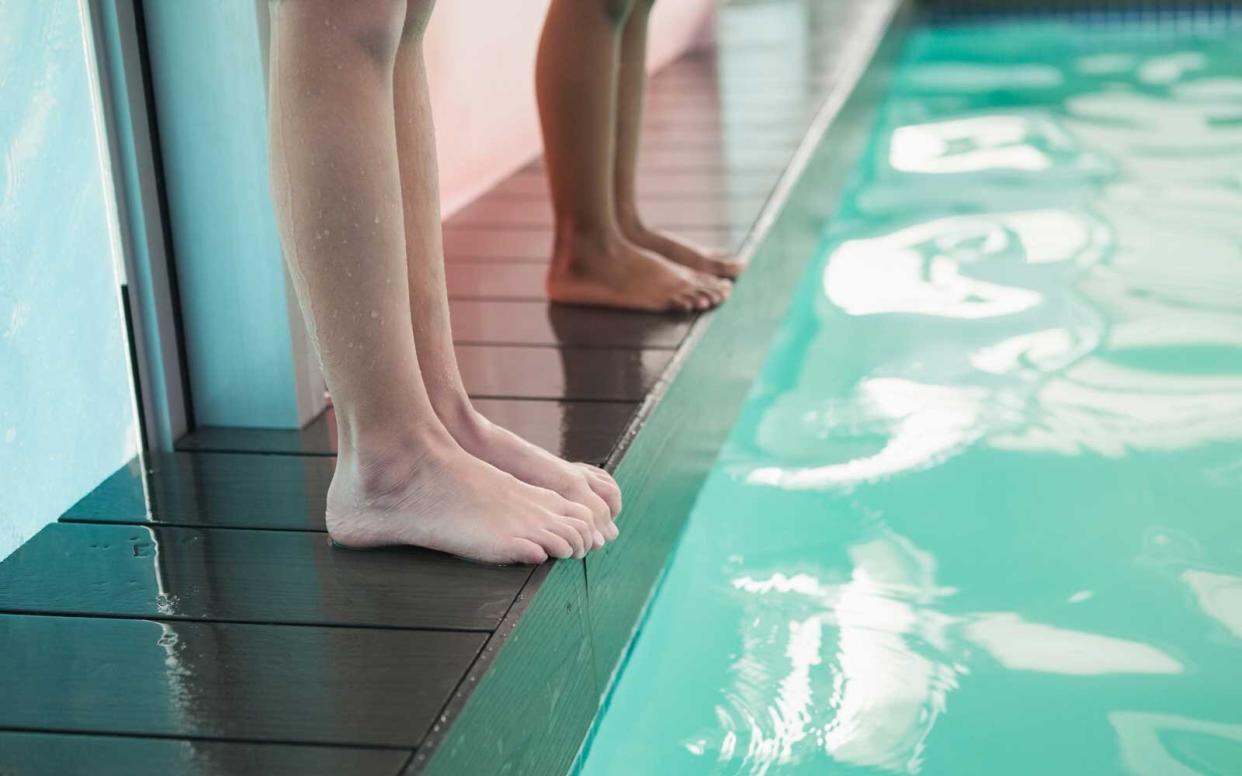There Could Be as Many as 20 Gallons of Pee in a Hotel Swimming Pool

Getty Images/iStockphoto
Before you dive into that hotel swimming pool, there’s something you should know: There’s probably human urine in there.
A new study, published this month in the Journal of the American Chemical Society, suggests that as many as 20 gallons, or 75 liters, in a large swimming pool may be pee.
To put that in perspective, The Guardian noted that scientists found “enough urine to fill a medium-sized dustbin.”
Scientists from the University of Alberta used a common artificial sweetener (acesulfame potassium-K, or ACE), to mark urine levels in 29 pools and hot tubs in two major Canadian cities.
“The strategy of using artificial sweeteners as indicators of human waste has been applied around the globe,” lead study author Lindsay Blackstock told Travel + Leisure, “but the concept had never been applied to recreational [waters].”
Blackstock and her team used this particular sweetener because it’s incredibly stable: Our bodies don’t break down the compound, and they exit in the same chemical form as they were ingested. They’re also unaltered by high temperatures, unaffected by ranges in PH, and passed exclusively in urine. Basically, ACE is the perfect marker for human urine in public pools.
For three weeks, researchers calculated the levels of ACE in public and hotel swimming facilities (and one private residence, just for good measure). What they found was that ACE occurred in measurable quantities in every single body of water, and at concentrations much higher—about 570 times—than Canadian tap water.
In a smaller swimming pool (about half of an Olympic-size pool), there still may be about 8 gallons, or 30 liters, of urine.
Hot tubs, however, are the worst. The study includes one hot tub that contained “more than double that of any other sample taken,” according to the report.
While that sounds like an awful lot of pee, Blackstock explained that’s just how much was necessary to get these levels of ACE.
“Urine breaks down really quickly,” she said. “[We’re] just looking at the concentration of sweetener, and that’s the volume needed to lead to the values that we saw.”
Blackstock also emphasized that people should not be afraid of the pee that’s almost certainly in your hotel swimming pool or hot tub.
“We want people to keep swimming,” she said. But while disinfection does a great job keeping pools safe, “public swimming hygiene is really the only true solution.”
If you wouldn’t admit to peeing in the pool, you probably shouldn’t do it. And, as Blackstock concluded, do your fellow swimmers a courtesy and “make sure to exit the pool before you use the restroom.”

